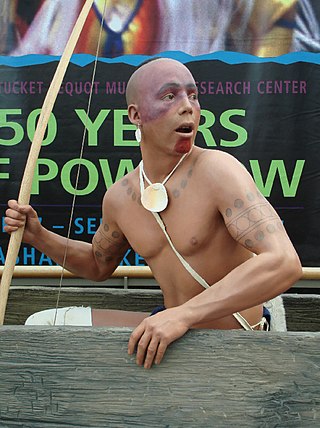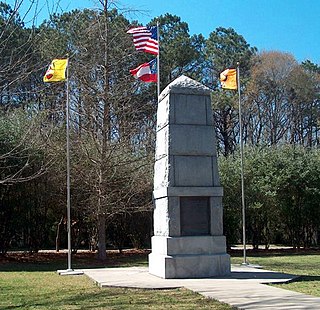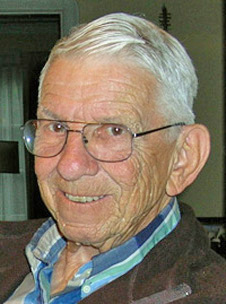Related Research Articles

Andrew Jackson was an American lawyer, planter, general, and statesman who served as the seventh president of the United States from 1829 to 1837. Before his presidency, he gained fame as a general in the U.S. Army and served in both houses of the U.S. Congress. Often praised as an advocate for ordinary Americans and for his work in preserving the union of states, Jackson has also been criticized for his racial policies, particularly his treatment of Native Americans.

The Pequot are a Native American people of Connecticut. The modern Pequot are members of the federally recognized Mashantucket Pequot Tribe, four other state-recognized groups in Connecticut including the Eastern Pequot Tribal Nation, or the Brothertown Indians of Wisconsin. They historically spoke Pequot, a dialect of the Mohegan-Pequot language, which became extinct by the early 20th century. Some tribal members are undertaking revival efforts.

The Trail of Tears was the forced displacement of approximately 60,000 people of the "Five Civilized Tribes" between 1830 and 1850, and the additional thousands of Native Americans within that were ethnically cleansed by the United States government.

Jacksonian democracy was a 19th-century political philosophy in the United States that expanded suffrage to most white men over the age of 21 and restructured a number of federal institutions. Originating with the seventh U.S. president, Andrew Jackson and his supporters, it became the nation's dominant political worldview for a generation. The term itself was in active use by the 1830s.

The Pequot War was an armed conflict that took place in 1636 and ended in 1638 in New England, between the Pequot tribe and an alliance of the colonists from the Massachusetts Bay, Plymouth, and Saybrook colonies and their allies from the Narragansett and Mohegan tribes. The war concluded with the decisive defeat of the Pequot. At the end, about 700 Pequots had been killed or taken into captivity. Hundreds of prisoners were sold into slavery to colonists in Bermuda or the West Indies; other survivors were dispersed as captives to the victorious tribes.

Arthur Meier Schlesinger was an American historian who taught at Harvard University, pioneering social history and urban history. He was a Progressive Era intellectual who stressed material causes and downplayed ideology and values as motivations for historical actors. He was highly influential as a director of PhD dissertations at Harvard for three decades, especially in the fields of social, women's, and immigration history. His son, Arthur M. Schlesinger Jr. (1917–2007), also taught at Harvard and was a noted historian.
Ethnohistory is the study of cultures and indigenous peoples customs by examining historical records as well as other sources of information on their lives and history. It is also the study of the history of various ethnic groups that may or may not still exist. The term is most commonly used in writing about the history of the Americas.

Richard Hovannisian was an American historian and professor at the University of California, Los Angeles. He is known mainly for his four-volume history of the First Republic of Armenia.
Todd Merlin Compton is an American historian in the fields of Mormon history and classics. Compton is a respected authority on the plural wives of the LDS Church founder, Joseph Smith.

Ronald Davis Bitton was a charter member and president of the Mormon History Association, professor of history at the University of Utah, and official Assistant Church Historian in the Church of Jesus Christ of Latter-day Saints working with Leonard J. Arrington.
James Brown Allen is an American historian of Mormonism and was an official Assistant Church Historian of the Church of Jesus Christ of Latter-day Saints from 1972 to 1979. While working as Assistant Church Historian, he co-authored The Story of the Latter-day Saints with Glen Leonard. After Ezra Taft Benson dismissed the book as secular new history, other events led to the dissolution of the LDS Church History department in 1982. Allen resigned as Assistant Church Historian in 1979, returning to work at Brigham Young University (BYU) full-time.
Jack Nusan Porter is an American writer, sociologist, human rights and social activist, and former treasurer and vice-president of the International Association of Genocide Scholars. He is a former assistant professor of social science at Boston University and a former research associate at Harvard's Ukrainian Research Institute. Currently, he is a research associate at the Davis Center for Russian and Eurasian Studies at Harvard University, where he conducts research on Israeli-Russian relations. Some of his research focuses include the life of Golda Meir, the application of mathematical and statistical models to predict genocide and terrorism, and modes of resistance to genocide. His most recent books are Is Sociology Dead?, Social Theory and Social Praxis in a Post-Modern Age, The Genocidal Mind, The Jew as Outsider, and Confronting History and Holocaust.

Charles Grier Sellers Jr. was an American historian. Sellers was best known for his book The Market Revolution: Jacksonian America, 1815–1846, which offered a new interpretation of the economic, social, and political events taking place during the United States' Market Revolution.

Rodman Wilson Paul was an American historian who taught at the California Institute of Technology. He was known primarily as a foremost authority on California mining and agricultural Native American history.
Howard F. Cline was an American government official and historian, specializing in Latin America. Cline served as Director of the Hispanic Foundation at the Library of Congress from 1952 until his death in June 1971. He was one of the founders of the Latin American Studies Association. He was also active in the Conference on Latin American History (CLAH), the professional organization of Latin American historians, which he chaired in 1964. He is still highly regarded as a scholar "devoted to and effective in the promotion of Latin American studies in the United States."

Alfred Fabian "Al" Young (1925–2012) was an American historian. Young is regarded as a pioneer in the writing of the social history of the American Revolution and was a founding editor of the academic journal Labor: Studies in Working-Class History of the Americas.
Newell G. Bringhurst is an American historian and author of books and essays. Most of his writings have been about Mormonism— particularly topics and figures of controversy, such as blacks and the priesthood, Fawn Brodie, polygamy, and schisms within the LDS movement

Brigham Dwaine Madsen was a historian of indigenous peoples of the American West, of the people of Utah and surrounding states, and of Mormonism. He was a professor at the University of Utah.

The Pequot War is a nonfiction book that reexamines historical sources on the Pequot War that resulted in new interpretations when this work was published in 1996. It was written by Alfred A. Cave and published by the University of Massachusetts Press. Also, this book is part of this university's series entitled: Native Americans of the Northeast.
References
- ↑ "Alfred A. Cave (1935-2019)". The Blade. September 11, 2019.
- 1 2 3 "The Jacksonian movement in American historiography". Ufdc.ufl.edu. Retrieved 2014-01-14.
- ↑ Johnson, Eric S. (March 1997). The New England Quarterly, Vol. 70, No. 1, pp 139-141.
- ↑ Linfield Magazine Staff (2011). "Class Notes", Linfield Magazine, Vol. 8: Issue 1, Article 13
- 1 2 3 4 "The University of Toledo – Alfred A. Cave". Archived from the original on March 7, 2013. Retrieved January 14, 2014.
- ↑ "The University of Toledo - Graduate Studies in History". Utoledo.edu. Retrieved 2014-01-14.
- ↑ "Distinguished University Teaching Award Recipients" (PDF). University of Utah. Archived from the original (PDF) on 2012-06-29. Retrieved 2014-01-14.
- ↑ "Distinguished Historian Award « The Ohio Academy of History". Ohioacademyofhistory.org. 2013-07-31. Retrieved 2014-01-14.